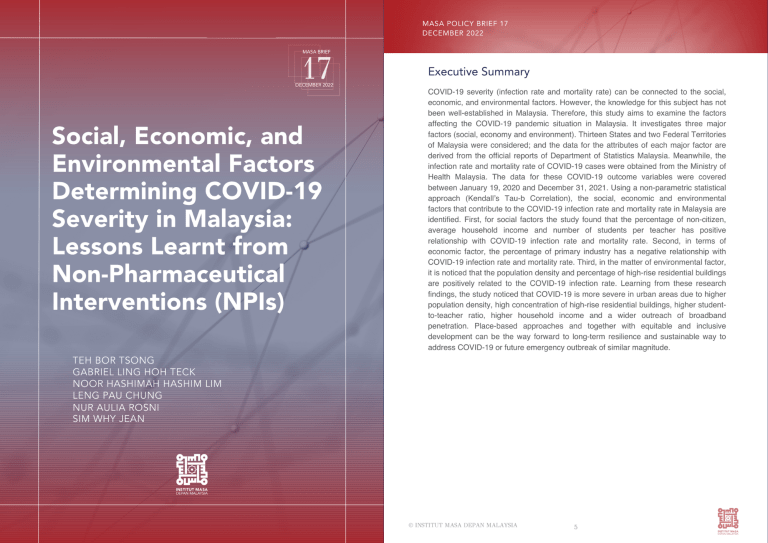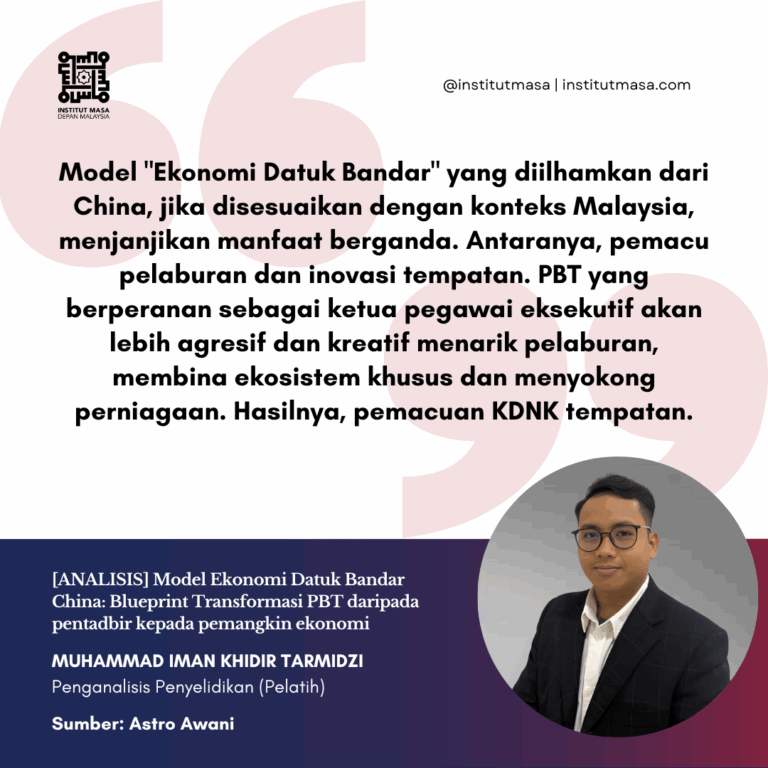COVID-19 severity (infection rate and mortality rate) can be connected to the social, economic, and environmental factors. However, the knowledge for this subject has not been well-established in Malaysia. Therefore, this study aims to examine the factors affecting the COVID-19 pandemic situation in Malaysia. It investigates three major factors (social, economy and environment). Thirteen States and two Federal Territories of Malaysia were considered; and the data for the attributes of each major factor are derived from the official reports of Department of Statistics Malaysia. Meanwhile, the infection rate and mortality rate of COVID-19 cases were obtained from the Ministry of Health Malaysia. The data for these COVID-19 outcome variables were covered between January 19, 2020 and December 31, 2021. Using a non-parametric statistical approach (Kendall’s Tau-b Correlation), the social, economic and environmental factors that contribute to the COVID-19 infection rate and mortality rate in Malaysia are identified. First, for social factors the study found that the percentage of non-citizen, average household income and number of students per teacher has positive relationship with COVID-19 infection rate and mortality rate. Second, in terms of economic factor, the percentage of primary industry has a negative relationship with COVID-19 infection rate and mortality rate. Third, in the matter of environmental factor, it is noticed that the population density and percentage of high-rise residential buildings are positively related to the COVID-19 infection rate. Learning from these research findings, the study noticed that COVID-19 is more severe in urban areas due to higher population density, high concentration of high-rise residential buildings, higher student-to-teacher ratio, higher household income and a wider outreach of broadband penetration. Place-based approaches and together with equitable and inclusive development can be the way forward to long-term resilience and sustainable way to address COVID-19 or future emergency outbreak of similar magnitude.
#17 : Social, Economic, and Environmental Factors Determining COVID-19 Severity in Malaysia: Lessons Learnt from Non-Pharmaceutical Interventions (NPIs)
- MASA Policy Development Programme, Policy Brief
Share Article
More Article
Article
By Muhammad Iman Khidir Tarmidzi Dalam struktur pentadbiran Malaysia, pihak berkuasa tempatan (PBT)...
Article
By Solahuddiin Ismail Mina Jangka hayat ketika lahir adalah satu anggaran purata umur...
Article
By Mohamad Fauzi Ahmad Meskipun ekonomi Malaysia bergantung pada permintaan domestik, sumbangan bumiputera...
Article
By Muhammad Iman Khidir Tarmidzi Siswazah muda dalam dekad kebelakangan ini, terperangkap dalam...
Article
By Muhammad Iman Khidir Tarmidzi Dalam struktur pentadbiran Malaysia, pihak berkuasa tempatan (PBT)...
Article
By Solahuddiin Ismail Mina Jangka hayat ketika lahir adalah satu anggaran purata umur...
Article
By Mohamad Fauzi Ahmad Meskipun ekonomi Malaysia bergantung pada permintaan domestik, sumbangan bumiputera...
Article
By Muhammad Iman Khidir Tarmidzi Siswazah muda dalam dekad kebelakangan ini, terperangkap dalam...
Article
By Muhammad Iman Khidir Tarmidzi Dalam struktur pentadbiran Malaysia, pihak berkuasa tempatan (PBT)...




